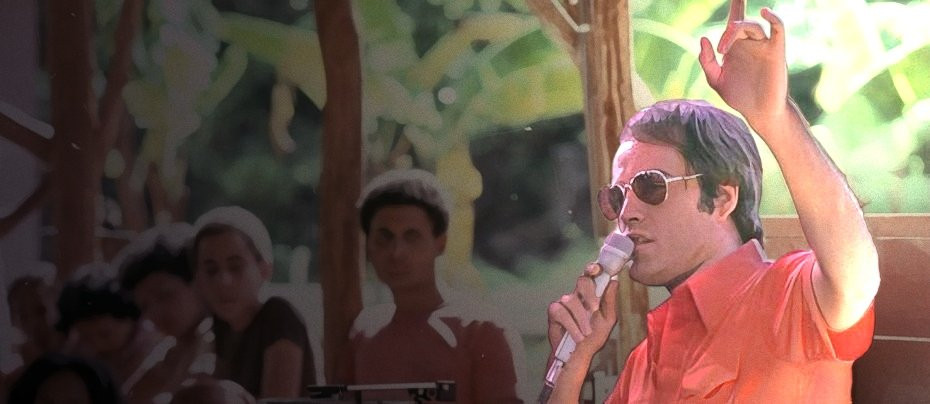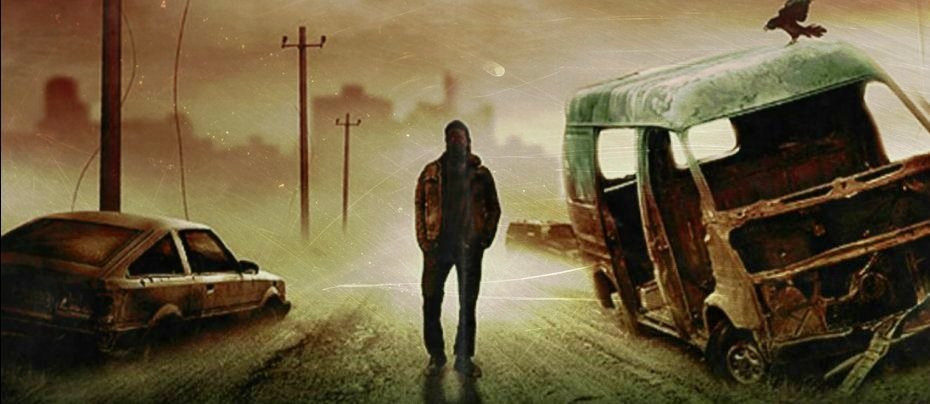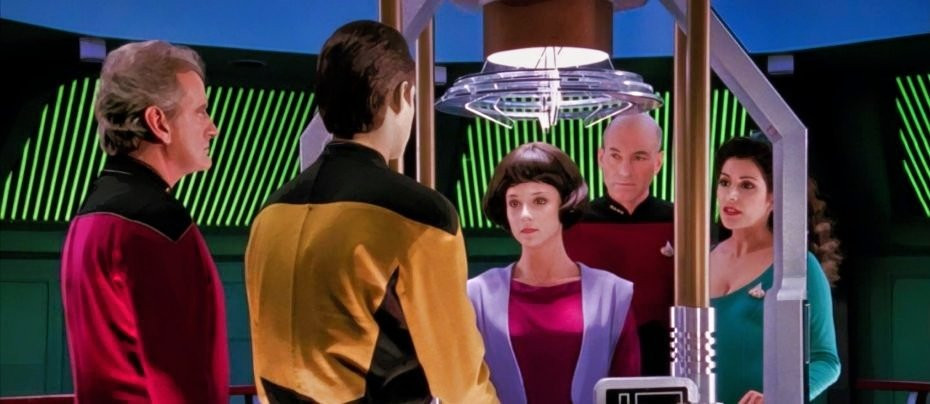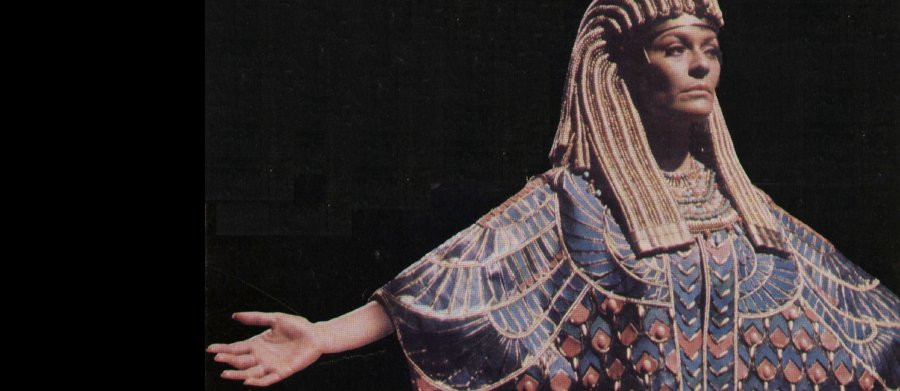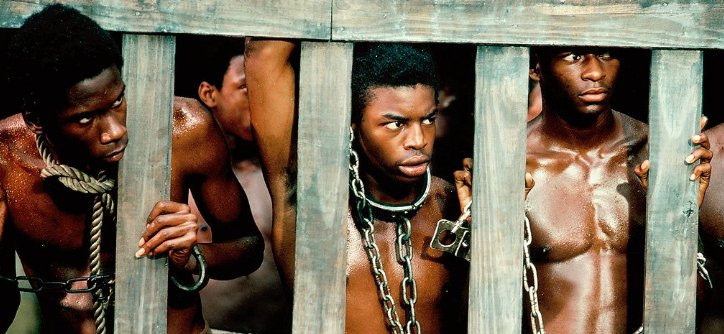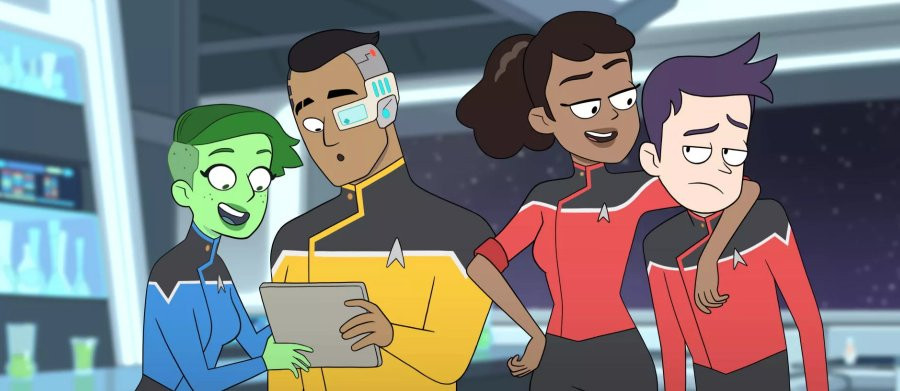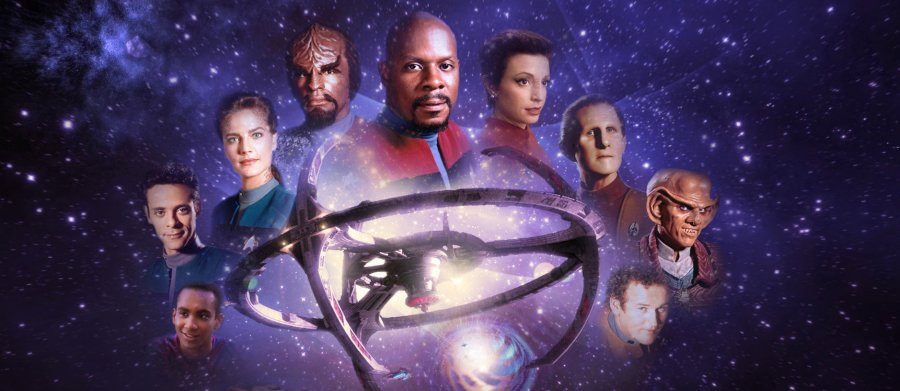
Trekking to the Big Screen - The Next Generation
“A feature adaptation of a television show must serve both the requirements of the cinematic format and the expectations of the fans of the television show.”
Review by John Winterson Richards
The previous article here traced the journey of the original Star Trek from a commercially unsuccessful television show to a successful film franchise. It was essentially an unexpected second chapter for the show. The same was not true of the adaptation of Star Trek: The Next Generation for the cinema. Since The Next Generation was itself a product of the success of the Star Trek film franchise, a continuation of the films using The Next Generation characters, if they proved popular, was considered at least a possibility from the very beginning.
Given that it took the new show a while to find its feet, that possibility must have seemed remote at first, but as it began to make its mark on public consciousness, conceptual work on a film version began even as it was still being made for television. There is therefore a far greater continuity between The Next Generation and its four feature film adaptations than there was between the original Star Trek and its six.
When the original Star Trek television show was cancelled in 1969, the organisation that had made it, the production team and crew, was broken up immediately and a decade passed before the first of the feature films, The Motion Picture (1979), requiring a new organisation to be built up almost from scratch. The television and film manifestations of The Next Generation by contrast were essentially the work of the same organisation, and many of the same off screen personnel. Only a few months separate the air date of the final episode and the release date on the first of the films, Generations (1994). The films therefore enjoy a definite consistency of style and tone with the show, as well as with each other, advantages that the six original Star Trek films lacked.
Yet The Next Generation films also went in with a big disadvantage. The original Star Trek had been a full network show. A failed network show, but still a network show. That gave it a high public profile, which was increased subsequently by frequent repeats on syndication. The Next Generation, however, was never a network show. It had gone straight to syndication. It had been a great success there, but there is a big difference between syndication success and network success - and indeed between syndication success and mere presence on a major network. This has diminished in time, but was still a huge factor in the 1990s. As a result, The Next Generation went to the cinema with a much lower level of public recognition than the original Star Trek. This was apparent in some of the mainstream reviews at the time.
There was also a self inflicted disadvantage, or rather a side effect of a triumph. The original Star Trek had been cancelled abruptly, even if the cancellation was far from unexpected, and had ended on a low note, Turnabout Intruder, generally considered one of its weakest episodes. This at least left the fans eager for something that would give them a proper sense of completion.
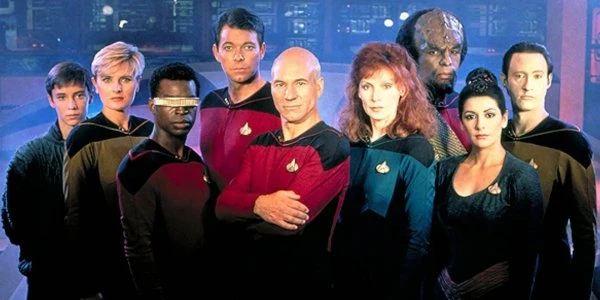
That was certainly not the case with The Next Generation. It had planned to run for seven seasons, considered the traditional level of success for a television drama - enough to leave a substantial body of work for repeats on syndication but not so much that it became stale - and it achieved that objective. With time to plan its conclusion, it delivered All Good Things, a two part finale generally considered one of the best episodes by fans and critics - and indeed a model for other shows of how to wrap things up with dignity.
The problem with the success of this finale is that, in dramatic terms, it left the subsequent films with nowhere to go. Nothing more needed to be said. There were a few loose ends, but no really big questions to be answered or important issues to be resolved. The fans were satisfied.
To be honest, The Next Generation films never overcame this lack of necessity. They always felt like appendices to the television show. Indeed, they all felt like extended episodes, perhaps two-part episodes, of the show itself. With one exception, none had stories big enough that they demanded telling on the big screen. They were simply more of the same.
This is not surprising since the feature films were essentially made by the staff of the television show. This is most unusual in Hollywood, where there was a definite demarcation between cinema and television production at the time, even if it has become less absolute since then.
Rick Berman, Executive Producer of the television show, doubled as Producer of Generations. He gave the script assignment for what became Generations to two of his top writers on the show, Ronald D Moore and Brannon Braga: both have since had very successful careers mainly in television, the former especially with the "reboot" of Battlestar Galactica and the latter at his best with Flashforward. Berman gave the director's chair to another trusted associate, David Carson, who had directed several strong episodes of The Next Generation and been entrusted with the pilot episode of Star Trek: Deep Space Nine but who had never directed a major feature film before.
Berman was therefore determined from the start to keep the films "in the family." Retaining his position throughout the four film franchise, even if he shared Producer credit on one of the subsequent entries, he continued this strategy for the next two features. Both were directed by Jonathan Frakes, who had directed several episodes of the television show as well as playing Will Riker the second lead. Of these two films, one was scripted by Moore and Braga again, the other by Michael Piller, another high ranking writer on the television side of the franchise. It was only with the relative failure of the third film, Insurrection (1998), the feature that felt most like a television episode, that Berman, or more likely his backers, lost confidence in that approach. Two substantial figures from outside the franchise were brought in to write and direct the fourth film, John Logan (Gladiator) and Stuart Baird (Ladyhawke, Executive Action, US Marshals) respectively. The result, Nemesis (2002), was the feature that felt least like a television episode - and which failed as badly as Insurrection and for the opposite reason.
A feature adaptation of a television show must serve both the requirements of the cinematic format and the expectations of the fans of the television show. It is hard to do both at once, and The Next Generation films erred first on one side and then on the other - and one managed to fail at both simultaneously.
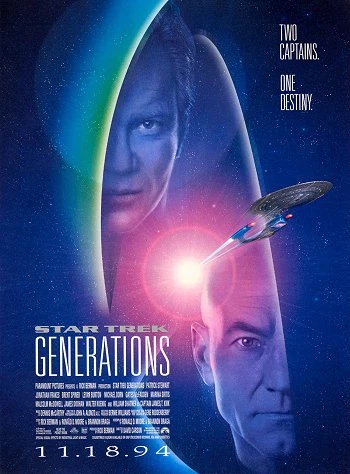
As the first The Next Generation film, Generations was always going to be a hybrid in another sense too: it was also the seventh film in the ongoing Star Trek film franchise, and the success of the film franchise rather than the television show was the main reason it happened in the first place: it was the success of The Undiscovered Country (1991), the sixth film in the series and the last starring the complete original cast, that was decisive in getting approval for what became Generations. The film therefore had the specific purpose of passing the torch, of making it clear that all The Next Generation films were part of the original franchise. It therefore included as many familiar faces from the original Star Trek as were available, and opens in their time period, not that of The Next Generation.
The film begins with a major event in the history of the Universe, the death of Captain James T Kirk. Of course we know he is not dead dead. They cannot just kill off one of the most beloved characters in modern culture in the first act. Nevertheless it is a jarring start and the film never quite recovers from it.
It also included a detail that got the entire The Next Generation film series off on completely the wrong foot with its core target audience. Among those along for the ride watching Kirk make his heroic exit was his old Chief Engineer, "Scotty," played by James Doohan. Hold on, says the observant The Next Generation fan, in the episode Relics back in Season Six Scotty emerges after decades trapped in a transporter beam and talks of Kirk as if he assumes he is still alive: how can this be? Such details matter a lot to Trekkers, and it seemed like an early indication that the films were not going to be entirely faithful to the show.
Having started with Kirk and his time period, the film then switches to Picard and his time period, only for Kirk to turn up again in the third act. This is disorienting. Is this film about Kirk or Picard? Who is meant to be our hero here?
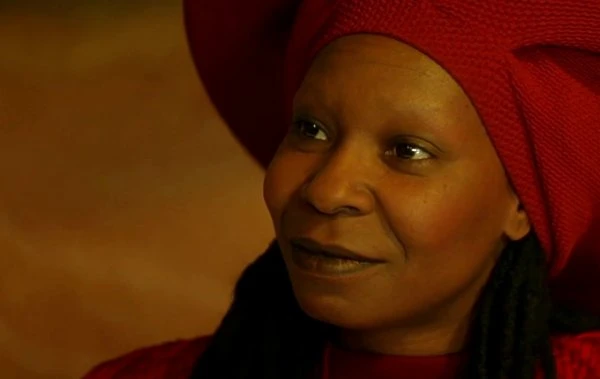
The MacGuffin that drives the plot is actually good one. It gives Guinan (Whoopi Goldberg) the chance to add to the story for once rather than just hanging around looking wise and mysterious. It turns out that she is one of a race of superior beings who once lived in a state of Heaven-like bliss. Indeed, it is so blissful that those who have experienced it will do anything to get back to it. Among those is a scientist, played by Malcolm McDowell, who is like an addict so desperate that he does not care what damage he does and how many he hurts so long as he gets what he craves.
The attraction of this is conveyed very cleverly when we get back to Kirk, who is shown reliving his perfect day on a permanent loop of which he is unaware. Of course, this cannot be the perfect day for a man of action like Kirk once he is made aware of it, so he teams up with Picard for one last adventure. In the course of taking out the mad scientist, Kirk is killed again, properly this time, and ends up dead dead after all.
The emotional significance of this is rather undermined by his earlier fake death. Another potentially powerful moment is wasted when the Enterprise D is rather thrown away for insufficient reason, much as Kirk's original Enterprise was in The Search for Spock (1984). That said, purely as an action scene, not as drama, the huge starship crashing into a planet was very well done - and truly spectacular when watched on the big screen when the film first came out. That was the one sequence when one felt that the production team really understood what was required to transfer a television show to cinema.
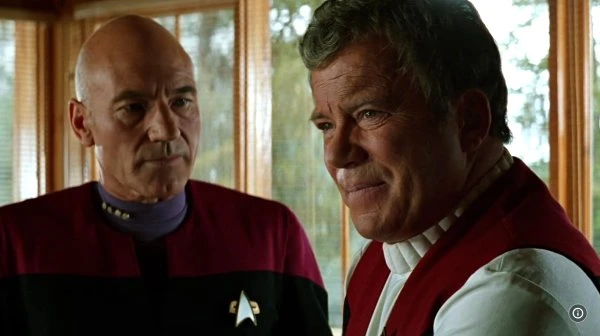
At the same time, there were several rather forced attempts to tie in with unresolved character arcs from the television show that must have mystified cinemagoers who were unfamiliar with it. Worf gets his long overdue promotion to Lieutenant Commander in a distinctly odd ceremony/celebration on the "holodeck." His old enemies the Duras Sisters are later shoehorned into the plot as Assistant Villains for no better reason than that they are always entertaining. Meanwhile, Picard casually loses his entire family in an off screen accident, throwing away an important storyline from the series to no real purpose, and Data finally uses the "emotion chip" given to him by his brother Lore.
The "emotion chip" was always a clumsy device. Surely the point is that it can only mimic emotion because Data still cannot feel anything. Nevertheless, it is quite moving when Data appears to experience joy when he discovers his longsuffering cat Spot (who has no spots) has survived the starship crash.
Like the very first Star Trek film,The Motion Picture, the first The Next Generation film did reasonably well at the box office and was received politely at the time by fans and reviewers. Only in retrospect has it become the object of more severe criticism. This criticism is perhaps exaggerated, if not entirely undeserved. Generations is not a bad film. On the contrary, it has a lot of good things in it, but they are not put together in a way that amounts to a great feature film.
It must also be said in defence of Generations that it has suffered by being compared with its immediate successor, First Contact (1996), the best of The Next Generation films - there really is no room for debate on that point - and at least a contender to be the best feature in whole Star Trek franchise.
The key to the success of First Contact is a truly cinematic premise: the Borg go back in time to take out Earth before humanity can develop warp drive. This is both suitably simple and suitably epic for the big screen, and it involves the best of all Star Trek villains.
Yet it is also true to the show, referencing Picard's experience with the Borg directly and very heavily. We see that he is not quite as over it as he might have appeared. However, it has to be said that his ruthless killing of members of his crew who have been assimilated does strike a false note because, of all people, he should know that there is hope for them.
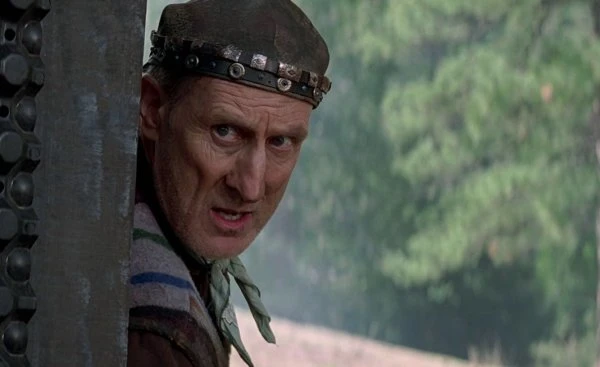
Respected guest stars from outside the franchise add a lot to the film. James Cromwell, in one of the most memorable performances of a very distinguished career, plays Zefram Cochrane, the revered inventor of warp drive, as a hippy-ish chancer - a million light years from Glenn Corbett's more straightforward version in the Season Two episode Metamorphosis in the original Star Trek television series. The ever reliable Alfre Woodard does a lot with a little as his assistant. Alice Krige, who has a unique gift for making the uncanny eerily attractive, is ideal as the Borg Queen.
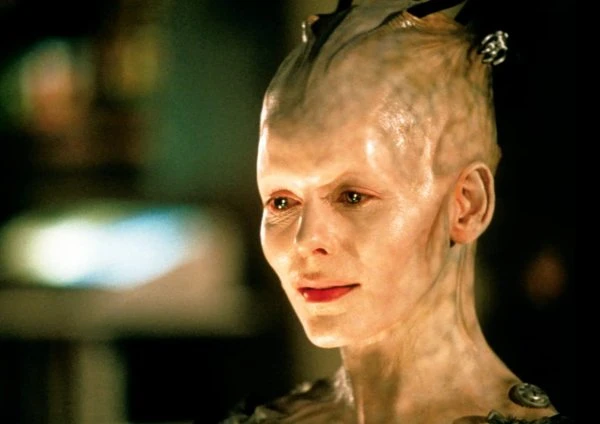
The film includes the only major reference to Deep Space Nine in the cinematic Star Trek, with Worf arriving in the Defiant, of which he had just taken command in that show at the time when the film came out, while Robert Picardo and Ethan Phillips from Voyager both turn up briefly. Dwight Schultz (The A-Team) has a neat cameo as fan favourite Lieutenant Barclay.
Director Frakes handles his material well. There is nothing televisual about his big set pieces (the involvement of the experienced Marty Hornstein, who had managed the production of the classic Silent Running, may have helped), his pacing is immaculate, and he gets the balance between tension and the lighter moments just right, without the humour appearing to be forced - a rare achievement, especially in science fiction.
The result of all this was a well deserved commercial and critical hit that was popular with fans but which also opened to door to mainstream success for The Next Generation characters. So why did they prove unable to build on the opportunity?
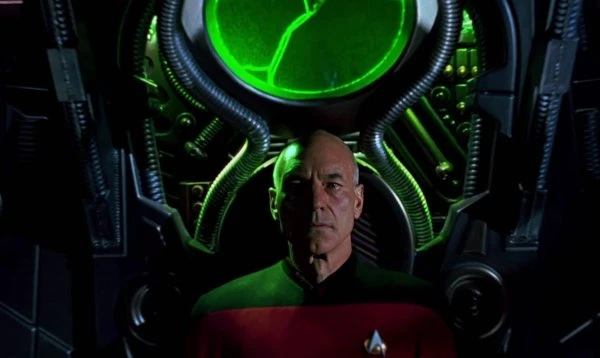
Part of the problem was that First Contact had set such a high bar that it was always going to be difficult for whatever followed. The more direct explanation is that the next film, Insurrection, followed a big story with massive stakes with a small story about which neither fans nor the more general audience had any reason to care. It seemed to forget all the lessons that had apparently been learned in First Contact about making a story cinematic. Yet at the same time it was untrue to the television show. Where the ideal was to satisfy the objectives of two different formats, Insurrection achieved neither.
The premise, anticipating Avatar, involves Picard and his loyal crew getting angry at the proposed relocation of a few natives living a deliberately low technology lifestyle so that their planet can be exploited for "the greater good," leading to the somewhat contrived insurrection of the title.
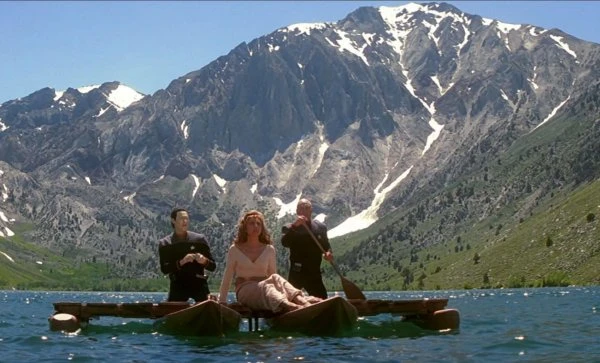
The ethics of this situation might have prompted an interesting discussion, the sort of thing both the original Star Trek and The Next Generation at their best used to do well, but Insurrection, like Avatar, is not really interested in exploring issues: it simply wants to set Good Guys against Bad Guys. Such oversimplification did Avatar no harm at the box office, but Insurrection is not using James Cameron's cartoon characters but people who have well-established and complicated backstories. That is the whole point of the Star Trek films, the unique selling proposition that is supposed to distinguish them from other science fiction cinema.
In particular, Picard has always been the poster boy for Starfleet conformity and has instilled the same ethos, sometimes quite ruthlessly, into his crew. These are people who obey orders. For them to mutiny is wholly out of character and inconsistent with everything that has gone before.
The excuse is that it is their superiors in Starfleet who have broken the rules by going against the Prime Directive. Yet, for all Picard's rather fanatical devotion to the Prime Directive, his own interpretation over the course of seven seasons was somewhat erratic. In the seventh season episode Journey's End he handles a very similar situation very differently. It would have taken something extraordinary for him to go against the very core of his being and there is nothing particularly compelling in the Insurrection script to suggest what that might be. He does take a shine to a native girl but the Picard of the television show would be horrified at the thought of a Starfleet officer being influenced by such personal considerations.
Frakes again keeps things moving briskly enough, and there are good guest turns from Anthony Zerbe and F Murray Abraham as the villains, but the film never gets over its basic conceptual flaws. Not only is it essentially a television episode plot, but it is also an inferior episode plot.
Returns were mediocre but, thanks to the brand name, not disastrous. There was still sufficient confidence in that brand name, and perhaps an almost superstitious confidence in the phenomenon that "even numbered" Star Trek always did better, for Berman to be allowed to go ahead, eventually, with a fourth The Next Generation film, the tenth in the whole Star Trek franchise. It was given the rather ominous subtitle Nemesis.
Berman and his team seemed to have learned their lesson from Insurrection. This time they went for a big story with big stakes and plenty of scope for big set pieces. They brought in some big villains, the Romulans, and made it personal for Picard by making the main villain his clone.
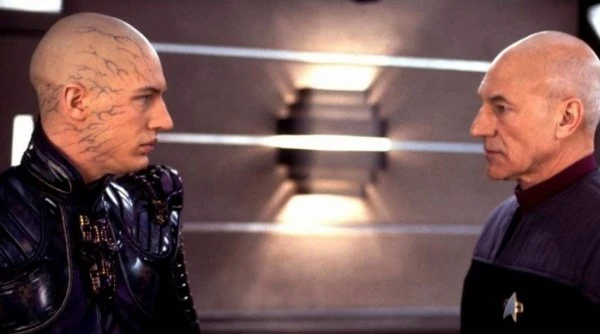
All this had great potential. It would have been particularly good to see more of the Romulan Empire, which, like the Roman Empire on which it is based, offered the possibility of all sorts of truly epic visuals on the big screen. However, Logan and Baird, the outside talent brought in to write and direct, do not seem to have appreciated what makes the Romulan Empire so unique and interesting in Star Trek. Indeed, neither man really seems to have understood what made Star Trek in general so unique and interesting. Both the script and the visual style are disappointing. This is not to say that they are bad - Logan and Baird are talented men - only that they felt not very Star Trek.
It seemed especially unlikely that a powerful and well established Empire that had been a major threat since the original television series could have been so easily taken over by a very young outsider. They were obviously trying to reference Spartacus, but not even a precocious performance by an up and coming Tom Hardy could make the character credible. The Picard clone aspect seemed an unnecessary bolt on.
The attempt to mimic the emotional power of Spock's death in The Wrath of Khan by killing off the popular android Data is negated by the overly convenient discovery of another android who happens to be just like Data. This is not the last time in the franchise that Data is given a big send off only to come back in another form.
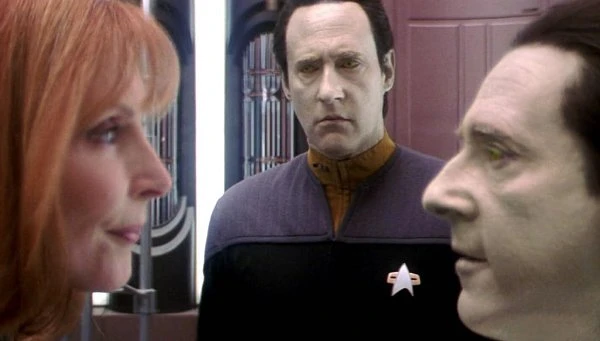
The film is not entirely without merit. There is a very good space battle, the final duel appears to mimic Excalibur very cleverly, and there are fine guest performances from Hardy, Ron Perlman, and Dina Meyer. Kate Mulgrew puts in an appearance as Kathryn Janeway from Voyager: It is pleasant to see that she is an Admiral now - even if it begs the question why has she been promoted ahead of Picard, who is presumably senior to her and has also saved the Universe a few times?
This prompts a broader question that applies to all four The Next Generation films, but especially the last two: why is the old Enterprise D crew still wandering around space together just as they were in the first season of the television show? Have none of them experienced any major changes or career development in over a decade in both real and Star Trek time? Worf advanced that one rank from Lieutenant to Lieutenant Commander, and that is it. At least the long gap between the end of the original Star Trek television show and the first of the films obliged the writers to think what else the characters might have been doing in that time. The characters from The Next Generation seem to have been trapped in amber throughout.
It was in this respect that the four films contrasted very unfavourably with the last episode of the television show, All Good Things, which showed a possible future that seemed far more credible because all the characters moved on with their lives in different ways.
Would they have experienced any progress had the film series continued? We will never know. Nemesis lived up to its name and became the film that shattered the "even numbered" Star Trek films doing well rule. It was not merely a limited success: it was a full on box office bomb that killed the franchise stone dead.
When Star Trek returned a few years later, it was as a complete cinematic "reboot" of the original series. Using the old trick of starting a whole new "timeline," Star Trek (2009) - no one bothered to give it a subtitle - was sufficiently entertaining to persuade fans to overlook a lot of very bad plotting, but the Law of Diminishing Returns soon set in with its inferior two sequels: the first was a very bad remake of The Wrath of Khan and it would be unethical for your reviewer to comment on the second, never having had the patience to sit all the way through it. Perhaps it got better...
This left The Next Generation with a sense of unfinished business after all. It was almost two decades before this was wrapped up back on the small screen with Picard.
Overall, the last four Star Trek films of the old timeline, The Next Generation films, were not as successful, commercially and critically, as the first six, the ones based on the original television show, nor are they, with the notable exception of First Contact, remembered as fondly. This may be unfair. All were well made and - if one is allowed to say it - much better acted than those with the original cast.
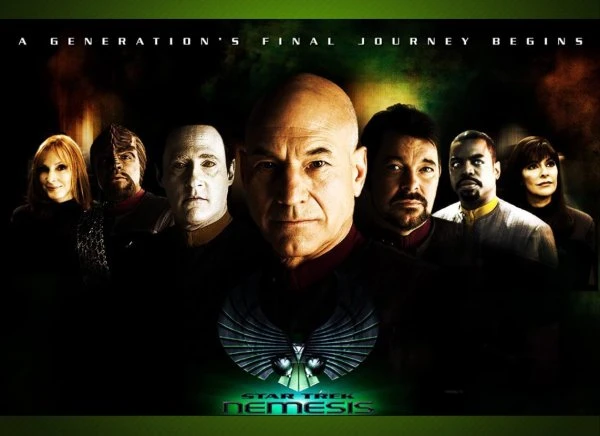
They also deserve credit for having picked up the lesson the original Star Trek films, that cinematic adaptations of television shows work best when they stay true to the shows. If anything, they erred too much on the side of never really moving beyond the show, First Contact again excepted. Indeed, First Contact is possibly the most frustrating of all four The Next Generation films because it shows how the whole series could have been so much better.
Published on June 23rd, 2023. Written by John Winterson Richards for Television Heaven.


